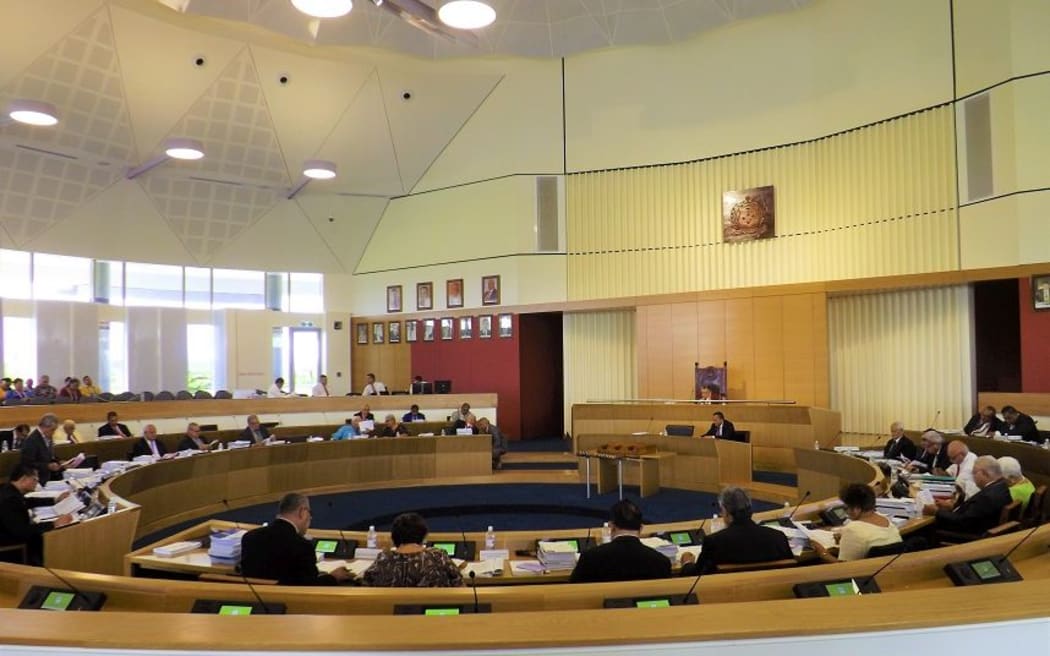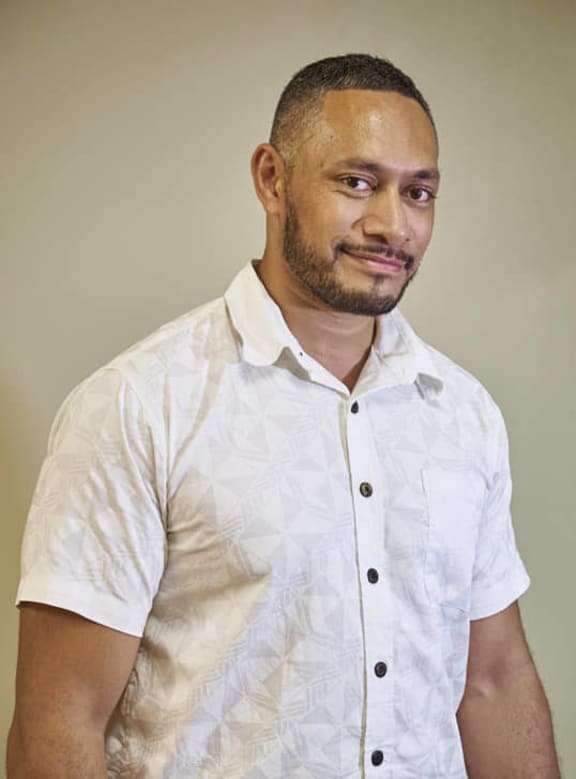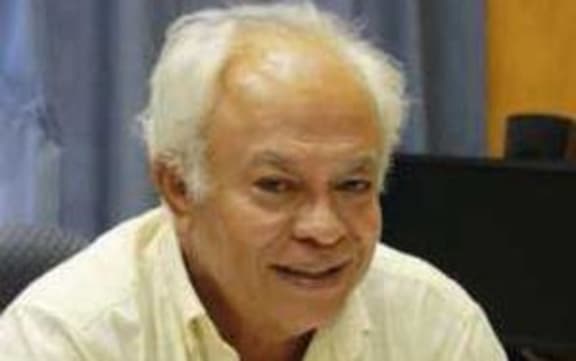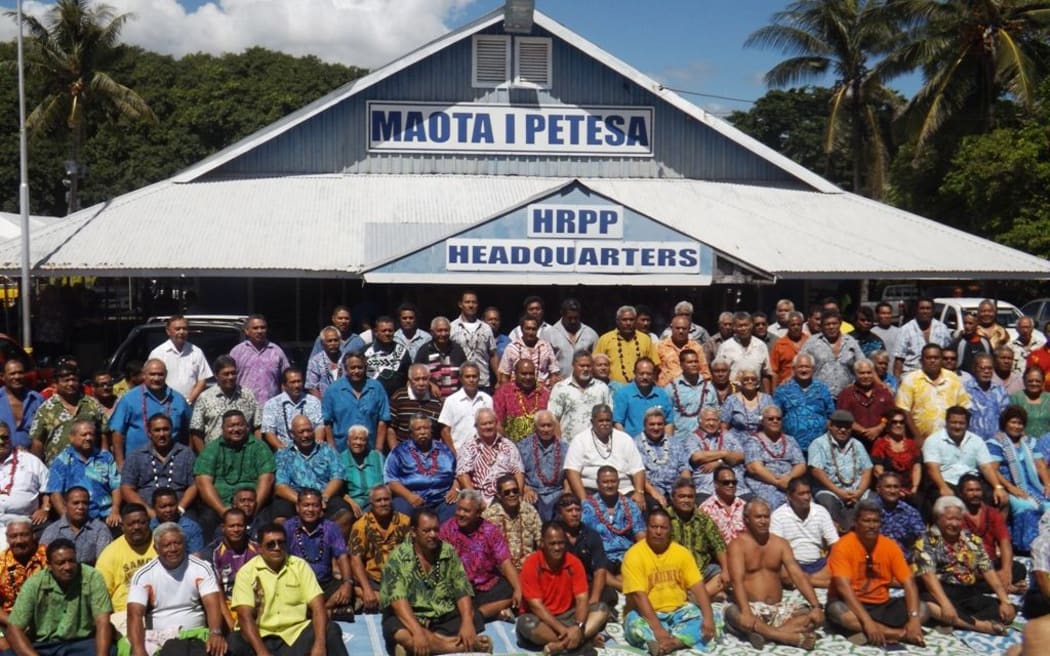Three controversial bills before Samoa's parliament may finally be receiving the public consultation required to proceed to a third reading.
However, the government was still being accused of remaining secretive on any progress.

Samoa's parliament Photo: RNZ Pacific /Autagavaia Tipi Autagavaia
The Constitution Amendment Bill, the Land and Titles Bill and the Judicature Bill have been decried by the legal community as rushed, poorly drafted and ill-considered.
The Samoa Law Society said the suite of bills would remove people's ability to uphold their Constitutional rights at the Lands and Titles Court, where customary land and chiefly title disputes are heard.
The Society President Leiataualesa Komisi Koria said they made a Parliamentary Select Committee submission on 4 May recommending the bills be removed from the (parliamentary) order paper.
"By the end of that three-and-a-half hours we weren't able to cover all the concerns and issues that we had raised so it was suggested to us that we adjourn and we'd be invited back for a second hearing."
The invitation remained outstanding.
But that day, the Select Committee agreed to take the bills out for village-wide consultation, a mandatory step in the Constitutional reform Leiataualesa said should have happened earlier.
However progress was a mystery.

Samoa Law Society president and Clarke Ey Koria Law partner, Leiataualesa Komisi Koria. Photo: Clarke Ey Koria
"We've been liaising with the office of the Legislative Assembly to try to find out exactly what the process will be for the Select Committee's work but we've found that the process has been quite secretive, if I can use that word."
He said it's unclear what stage the hearings or village consultations were at.
Leiataualesa said it's also not normal for the committee to run the consultations as it's made up mostly of government members and the process must be apolitical.
"We would be open to participating just to ensure that the messaging and the information that's provided to different villages is fair and open and provides a balanced illustration of what these bills mean."
Leiataualesa said there was a lot of concern at the lack of public consultation and there was a desire to slow the whole process down.
He said various village fono, or councils, were taking the initiative and discussing the matter themselves.
Meanwhile, a prominent Samoan historian and former Lands and Titles Court judge said the proposed reforms would not solve problems with the way traditional disputes were handled.
Meleisea Leasiolagi Dr Malama Meleisea said a review was needed of the 1800's era framework that Lands and Titles Court judges operated under.
"Now, I contend that Samoan customs and traditions a hundred years ago have changed a lot and a lot of Samoans both in Samoa and overseas are having lots of problems with the way the court is handling a lot of these issues."
Meleisea said the principals of the court system were established at a time when the Samoan population of around 40,000 resided in villages.
He said the bills don't consider half of today's Samoans, 250-thousand, now living overseas.
"But if they come out in the Lands and Titles Court with a principle saying 'this is what we're going to use in order to determine inheritance of titles and land boundaries to reflect the rights of the diaspora as well as the Samoans who are living at home' that would be a lot more realistic."

Dr Malama Meleisea Photo: Centre for Samoan Studies
He contends that Samoa's culture and population has grown and evolved since then but guidelines the court follows have not.
The chair of the Samoan Advisory Council in New Zealand, the Reverend Tavita Filemoni, said he was saddened by the attitude of Samoa's prime minister to those living overseas.
"The reason why we came to New Zealand and overseas was to support our families back in Samoa and by doing that we are making a contribution to the economy of our country. And we are talking about millions of dollars here, not just one-hundreds of thousands."
Mr Filemoni said the aspirations of those living abroad were not being considered.
He said the community in Wellington joined others from around the world, including Samoa, in calling for the government to reconsider.
Cracks begin to show
Meanwhile, the Samoa Law Society president has welcomed the dissent starting to show in the ruling Human Rights Protection Party (HRPP).
Leiataualesa points to a spat between Prime Minister Tuila'epa Sa'ilele Malielegaoi and the Faleata MP Faumuina Wayne Fong.

HRPP MPs and their supporters Photo: RNZI / Autagavaia Tipi Autagavaia
Faumuina was reprimanded for views expressed about the controversial bills before parliament and told to resign.
The spat follows another between the PM and his deputy where Fiame Naomi Mata'afa was invited to resign for questioning an amendment to the Electoral Act.
Leiataualesa said the dissension is welcome.
"Because we'd really like to see individual MPs draw their own conclusions and form their own opinions about what these bills mean and whether they're good for the country," he said.
"It's quite concerning to see the recurrence of this sort of situation where any sort of questioning or concerns raised by individual MPs is being met with such a response from the leader of the government."
The bills are due back in parliament in June for their third reading, however, the final reading is likely to be in August at the earliest.


